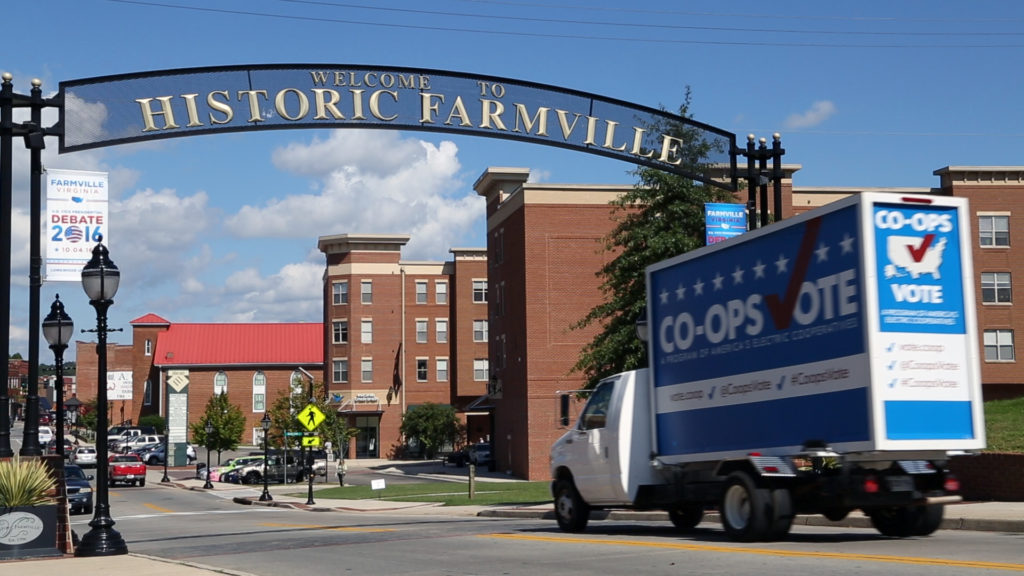
Everyone knows that electric co-ops keep the lights on. And on Election Day in America, co-ops voted.
As pundits continue to dissect Donald Trump’s election as president, NRECA CEO Jim Matheson declared, Co-ops Vote, the nonpartisan campaign to boost rural voter turnout, a resounding success.
“We really do feel quite confident that our Co-ops Vote program had significant impact on voter turnout,” said Matheson. “Rural America’s voice was heard in this election and it will be a powerful voice moving forward.”
The election results also amplified NRECA’s position as the “most significant voice for rural America in Washington,” he added.
That should well serve the more than 42 million electric co-op members in 47 states when it comes to negotiating on key legislative or regulatory issues, such as the Farm Bill or the Clean Power Plan, he said.
Rural voters’ large turnout “gives us an important platform to talk about the Clean Power Plan and its impact on our members,” Matheson said.
“It’s important that the Trump administration and the next Congress work in partnership with electric co-ops on common-sense goals like modernizing the nation’s energy infrastructure and enhancing the quality of life in our communities,” Matheson said.
From our files: Vice President-elect Mike Pence is a familiar face to co-ops in Indiana.
NRECA is crunching its numbers from the Co-ops Vote effort to see how many members went to the polls.
Immediate analyses by other organizations showed that rural voters came out in substantially higher numbers—an apparent reversal from previous years’ elections where votes outside metropolitan areas were seen as dwindling.
According to The Daily Yonder, unofficial, partial data from three crucial states—Michigan, North Carolina and Pennsylvania—showed Trump won in all the rural areas, but not the big cities. In Pennsylvania, the rural turnout appeared to be 77 percent for Trump, the newsletter from the Center for Rural Strategies said.
Rural voters overwhelmingly cited financial distress compared to their urban or suburban counterparts in preliminary data from exit polls conducted by ABC News Analysis Desk.
Specifically, 72 percent of rural voters gave the economy a negative rating while 57 percent of urban voters and 63 percent of suburban voters did, the analysis said.
The analysis also found that 36 percent of voters from rural areas said they were “worse off financially” now compared to 2012 while 20 percent of the urban voters and 28 percent of suburban dwellers responded the same way.
“For 75 years, America’s electric cooperatives have brought power, hope and opportunity to rural America. We look forward to helping the nation come together and move forward,” said Matheson.
Cathy Cash is a staff writer at NRECA.